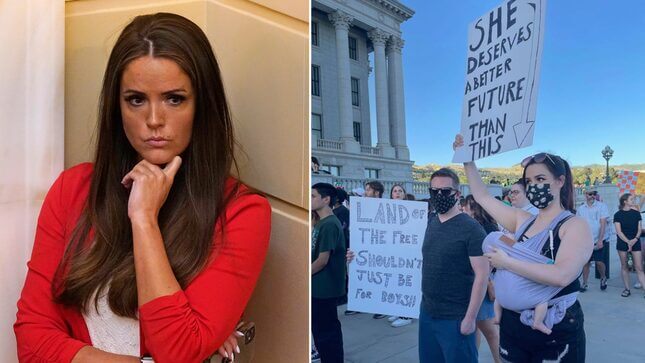GOP Lawmaker’s Sister, a Rape Survivor, Publicly Protests Her Proposed Abortion Ban
Utah State Rep. Kera Birkeland's abortion ban requires rape victims to report to police. Her sister says she "mocked my abuse, my trauma, and my assault.”
AbortionPolitics

A Utah state lawmaker who introduced an abortion ban requiring rape victims to report their rape to law enforcement for limited abortion access is being very publicly challenged by her sister, a rape survivor.
State Rep. Kera Birkeland (R) introduced a bill last week to further ban abortion in Utah, which currently limits it at 18 weeks. Birkeland’s bill would ban abortion at any point in pregnancy with few stated exceptions, including severe health risks for the pregnant person, lethal fetal defects, or cases of rape and incest—however, the bill requires rape victims to report the assault to police in order to qualify for the exemption. It’s a jarring requirement, given that the overwhelming majority of rapes aren’t reported to law enforcement, often due to a very real fear of police.
The cruelty of Birkeland’s legislation hasn’t been lost on her sister, Samantha Hansen, who wrote in a Facebook post on Monday that “had [filing a police report] been a requirement in 2014, the year I was raped, I don’t know that I would be here today.” Writing of her sister’s anti-abortion stances, “Based on her treatment of me, a rape survivor, and her sister, I believe it is safe to say that Kera [Birkeland] doesn’t care about protecting rape survivors.”
-

-

-

-

-

-

-

-

-

-

-

-

-

-

-

-

-

-

-

-

-

-

-

-

-

-

-

-

-

-

-

-

-

-

-

-

-

-

-

-








































